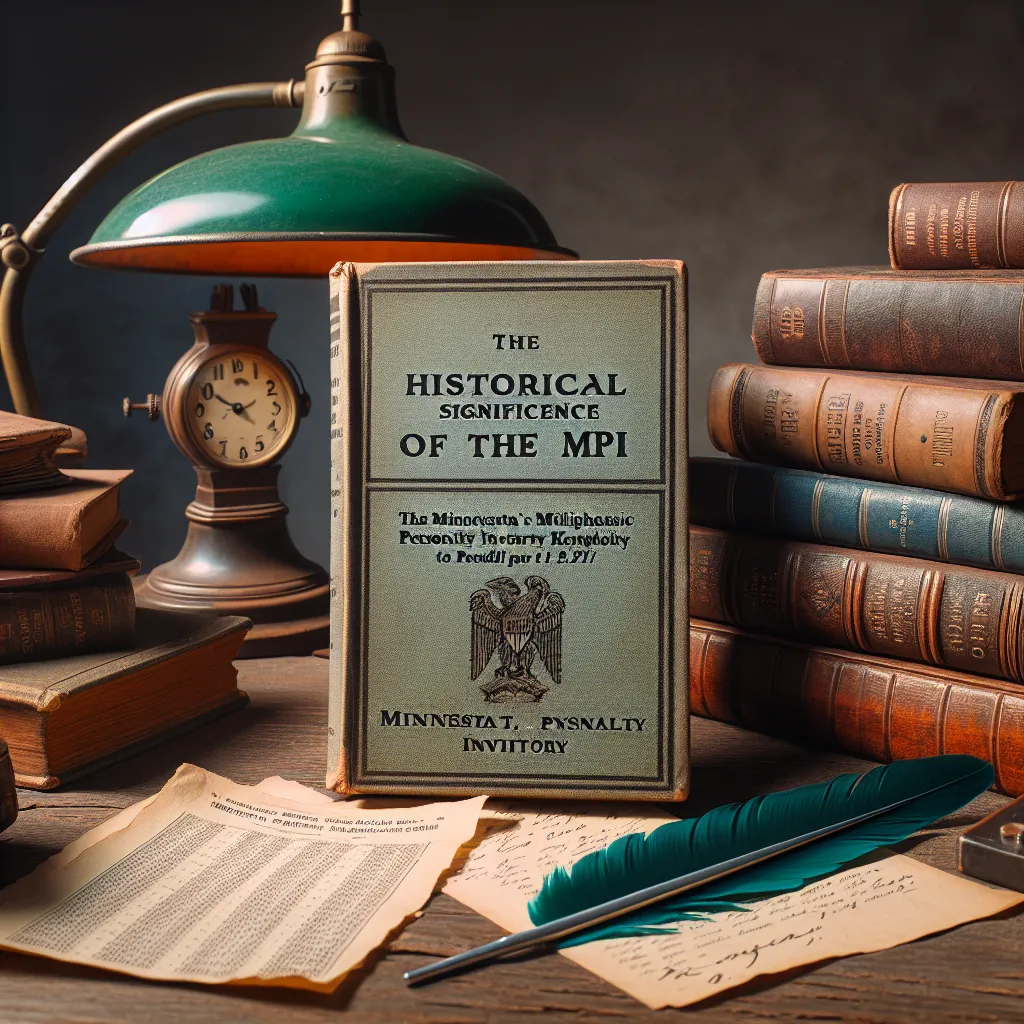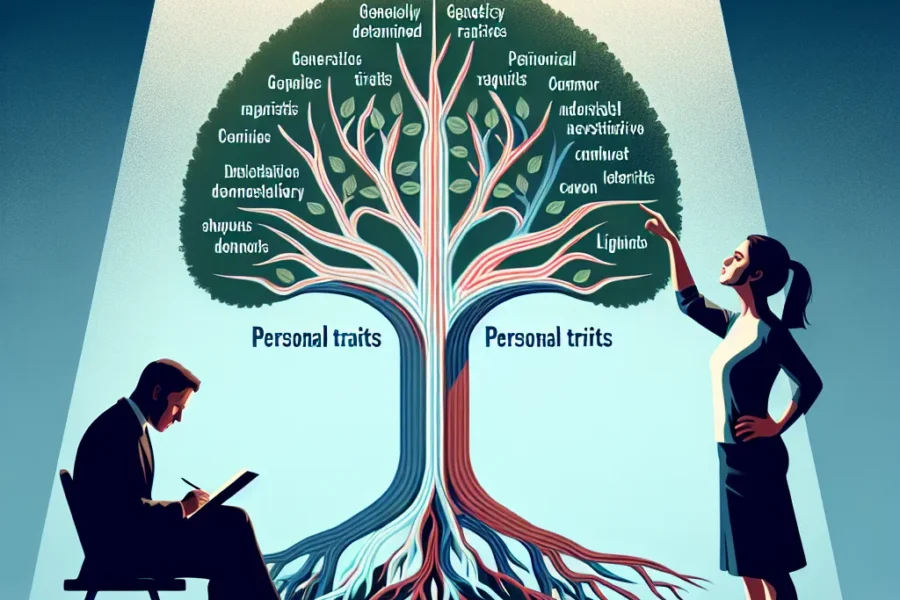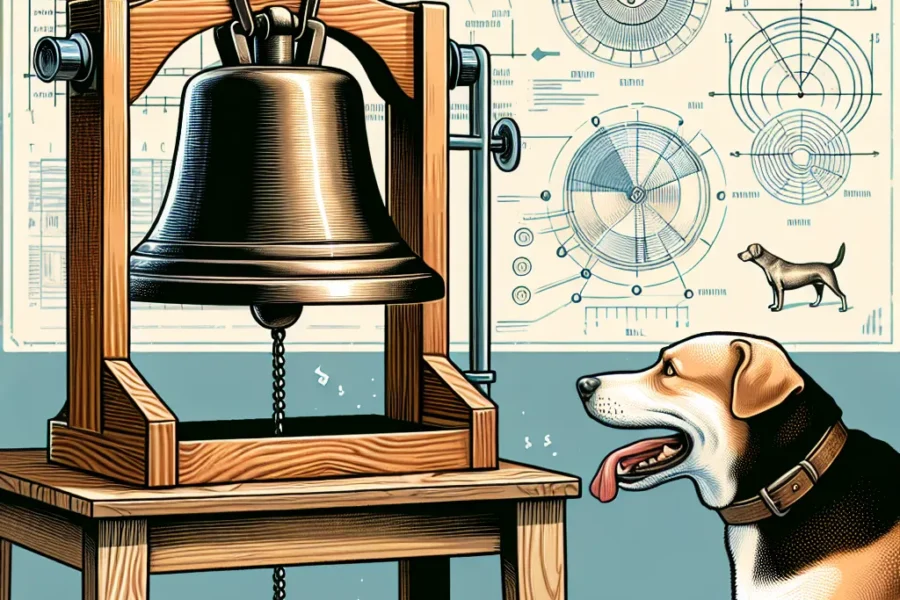The Minnesota Multiphasic Personality Inventory (MMPI), developed in the late 1930s by psychologist Starke R. Hathaway and psychiatrist J.C. McKinley at the University of Minnesota, has stood the test of time as one of the most widely used and well-researched psychological assessment tools. Its historical significance lies not only in its extensive use for clinical diagnosis and treatment but also in its profound influence on the fields of psychology and psychiatry, particularly in how mental health conditions are understood and how individuals are evaluated.
Originally designed to aid in the diagnosis of psychiatric disorders, the MMPI has evolved through its subsequent versions, MMPI-2 and MMPI-2-RF, to become a versatile instrument used in a variety of settings beyond clinical psychology, such as forensic evaluations, employment screenings, and medical assessments. Through its standardized set of true or false questions, the MMPI assesses various psychological conditions and personality structures.
The development of the MMPI was groundbreaking because it was one of the first tools to use an empirical approach to personality assessment. Before the advent of the MMPI, personality testing was often subjective and lacked the methodological rigor. Hathaway and McKinley’s inventory utilized a large and varied sample to derive its scales, which helped to create a more objective and statistically validated tool.
The historical significance of the MMPI can be seen in its development and its contributions to the advancement of psychometrics. The innovative use of the empirical criterion keying method allowed the MMPI to identify psychological conditions based on patterns of responses to a broad array of statements. This method not only helped in detecting symptomatic behaviors and thoughts but also paved the way for future tests that would rely on empirical validation rather than theoretical assumptions.
Moreover, the MMPI has played a pivotal role in the standardization of personality assessment. Its rigorous statistical underpinning and validation process set a precedent for future test development, ensuring that psychological assessments are reliable, valid, and standardized across different populations. Psychologists could now compare the test results of individuals with those of a representative sample, contributing to more accurate and meaningful interpretations of test scores.
The MMPI revolutionized how mental health conditions are perceived and treated. It provided a complex yet structured means to evaluate mental health and was instrumental in developing a more nuanced understanding of various psychological conditions. By identifying and categorizing different psychological profiles, the MMPI helped clinicians develop targeted therapeutic interventions, which were more effective in managing and treating mental health disorders.
Its cultural impact on the assessment process is also notable, as the MMPI brought to light the necessity to account for cultural and social factors in psychological testing. Subsequent revisions and adaptations of the MMPI were tailored to diverse populations, with items and norms reflecting the demographic and cultural variances of the participants. This consideration was critical for maintaining the test’s relevance and validity across cultures and settings.
In the legal domain, the MMPI has been used extensively for forensic assessments, including but not limited to, competency evaluations, criminal responsibility, risk assessments, and custody disputes. The objectivity and empirical foundations of the MMPI make it a trusted source in legal settings where psychological evidence can provide crucial insights into an individual’s state of mind or future behavior.
Furthermore, the evolutionary journey of the MMPI showcases its historical significance. As more was understood about psychological conditions and as societal norms evolved, updates to the inventory were necessary. The MMPI-2, released in 1989, and the MMPI-2-RF, published in 2008, provided updated norms and scales reflecting contemporary issues and the latest clinical knowledge, maintaining the inventory’s relevance for modern-day use.
The MMPI’s design also influenced numerous other psychological assessment tools, both in terms of scale construction and the approach to interpreting complex data. The MMPI provided a blueprint for subsequent multivariate assessments, contributing to the development of a more refined understanding of human personality and psychopathology.
While its historical significance is unquestionable, the MMPI also stands as a testament to the evolving nature of psychological science. As with any instrument with a long history, the MMPI has been subject to debates and criticisms, but it has continuously adapted and improved in response to new findings and societal changes.
In research settings, the MMPI has played an integral role in contributing to the body of knowledge surrounding personality and psychopathology. Countless studies have utilized MMPI data to explore the relationships between psychological variables and behavior, highlighting the test’s versatility and depth.
The MMPI’s influence extends to the education and training of future psychologists and mental health professionals. Understanding the MMPI’s scales, administration, scoring, and interpretation is a staple in psychological assessment courses around the world, and proficiency in the MMPI is often seen as a cornerstone of psychological assessment skills.
The MMPI’s longevity and widespread use are attributed to its continuous refinement and the trust it has garnered in the mental health community over the decades. The comprehensive data it generates provides a rich source of information for a broad array of psychological inquiries, from clinical assessments to research studies.
In conclusion, the historical significance of the MMPI is manifold. It has been a cornerstone of professional psychology for decades, influencing the way mental health conditions are diagnosed, treated, and understood. Its empirical foundation, its adaptation over time to align with advances in psychological science, and its applicability across various contexts reflect its enduring relevance. The MMPI exemplifies a legacy of innovation and empirical rigor in psychological assessment, marking its place as one of the most influential psychological tools of the 20th century and beyond.



Leave a Comment